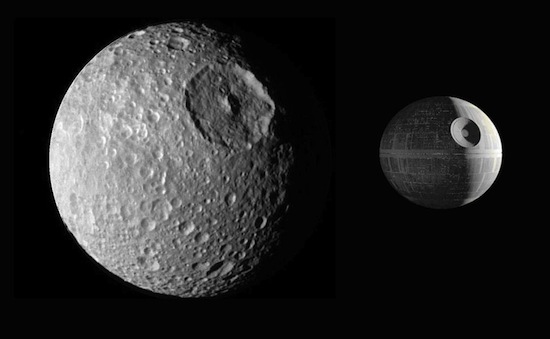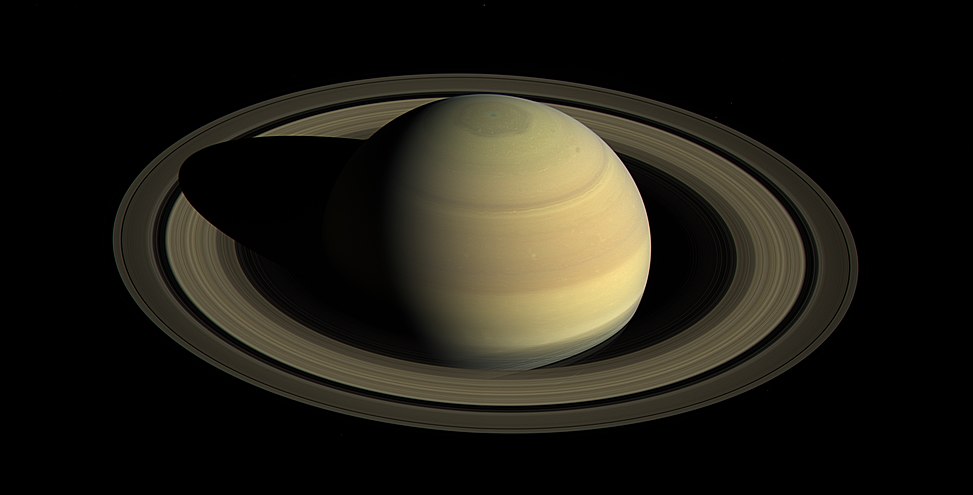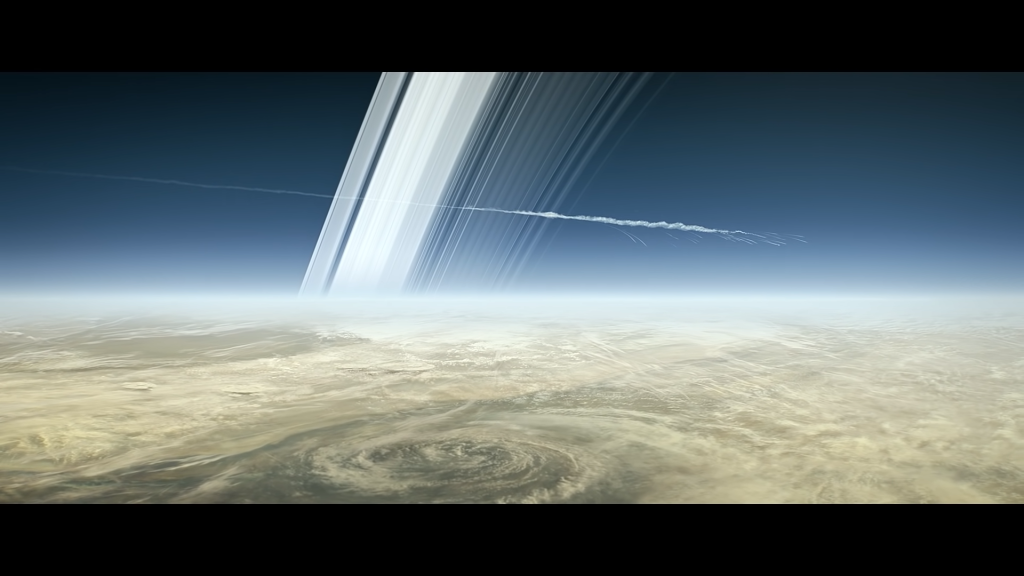Saturn is the mooniest planet in our Solar System, with us having discovered over 80 of them. While many moons have interesting features, only one of them look like they could destroy Alderaan. Say hello to the moon Mimas, which as you may notice, looks a bit familiar.
That’s right, Mimas look like the Death Star from Star Wars. While the entire surface of the moon is riddled with craters (meaning the world is quite old), the 80 mile diameter Herschel Crater is without a doubt its most defining feature. It is thought that the impactor responsible for this crater nearly tore the world apart. In fact, there are fractures on the opposite side of the surface, demonstrating the intensity of the impact. The myriad of craters also implies the world to be frozen, which is a bit puzzling, as the position of the moon suggests to scientists that there would be a great bit of tidal heating, which would result in a warmer world. This paradox has led to the “Mimas Test,” which requires that any theory that explains the partially thawed water of the moon Enceladus (a moon near Mimas) must also explain the entirely frozen water of Mimas. The exact reason for the conditions of Mimas are still unclear, but as you may know, the dark side of the Force is a pathway to many abilities some consider to be unnatural…









